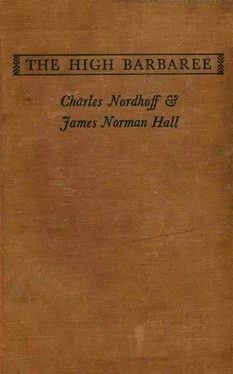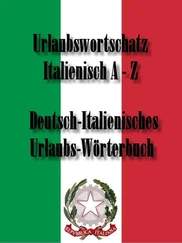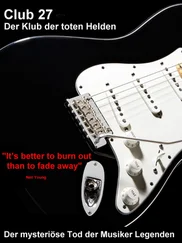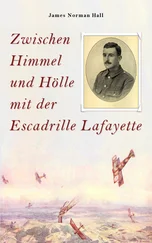“The town hasn’t changed much since the early days, and the people living there are the descendants of the old-timers. Maybe Westview was lucky in having the kind of people it did; those who founded it, settled there and stayed there. They were men and women of good blood and education, some from New England, some from upper New York State, some from Virginia and Pennsylvania. They were individuals, every one, and they loved the land. It needed only a generation to make Iowans of them. They were hard workers—they had to be in those early days—but it wasn’t long until they could take things easier and get some real pleasure out of life.
“The name, Westview, doesn’t really fit; there is no wide view from the town itself. It was sited, originally, three miles to the west, where there is a superb view. The first log cabins were built there, but when the railroad came it was decided to move down beside it. For all that, Westview has always seemed to me exactly right for the name. Ever since I was old enough to see I’ve looked to those hills where the old town stood. To me, the song ‘Over the Hills and Far Away’ has always meant those particular hills; and ‘far away’ has meant west, as though there could be no end to ‘far’ in that direction.
“Our house is on a broad street shaded by elms planted sixty years ago. It isn’t much to look at; the homes of country-town doctors rarely are, but I wouldn’t trade it for any of the others. It had been my Grandfather Brooke’s home, and when it was built, his office was built into it. That shabby old room with its rows of bottles and its smell of drugs has always been a romantic place to me. Dad followed my grandfather in his profession and I would have, too, except for the war. Country-town doctoring seems to be in the blood of the Brookes.
“From the time I was six I used to ride with my father on his calls around that part of the country. He had an old Ford that everyone in the county knew. He also kept a surrey, if you know what that is: a two-seater carriage. It was built by the long-since-defunct Spaulding Wagon & Carriage factory, of Grinnell, Iowa. That was my dad’s real love. Often, when he had a country call to make, if there was no hurry, he would hitch Toby to the surrey and take me with him.
“There was one road that led due south out of the town. It had never been paved, and is no wider now than it was in the old days. The strip of ground on either side is still a part of the old prairie, with wild roses and geraniums, goldenrod and black-eyed Susans growing there according to the time of year. This was my father’s favorite road, and I came to love it as much as he did. A mile beyond the town it turns west and mounts the long slope leading to the hills I’ve spoken of, and by the time you’ve reached the top it is a westward-leading road with a view across miles of country. You’ll have to imagine what you can see from there. I couldn’t begin to tell you of the beauty of the landscape, particularly on a still midsummer afternoon, with nothing to break the silence, perhaps, but the call of a peewee coming from far away. I’ve always associated that view with the faint lonely call, ‘Pee-wee . . . Pee-wee,’ as though it were the very voice of silence and midsummer peace.
“I’ll not take you any farther along that road. You’ll see why I’ve brought it in. But there’s something else I want to speak of in this connection. It concerns my mother and her piano.
“She was twenty years younger than my father, but they were a happily mated pair. She rarely called him by his first name, John. It was usually ‘Doctor’ and somehow that was just right, the way my mother said it. You seemed to feel in it the gap in years that separated without dividing them.
“They were both music lovers. My father played the flute and had been a member of the Westview orchestra as long as I could remember. Mother was really good on the piano, though she rarely played except at home. I remember how I used to stand beside her as she played my father’s favorite songs, or accompanied him as he played the flute. He had old-fashioned tastes in music. So did Mother. Maybe that’s why my own tastes run somewhat in the same direction: into the past.
“I must have been six or seven when I first heard Mother play Paderewski’s Minuet in G, and I seemed to know immediately what it meant to me. All kinds of things have associations for kids at that impressionable age, music in particular, and the Minuet in G was my perfect description of that westward-stretching country beyond the hills. It was the country itself as I saw and felt it, as I took it in through the pores of my skin. I’ve heard the Minuet played hundreds of times since those days, but I never get tired of it. It always brings back the old deeply loved country beyond the hills, but idealized, more beautiful than any earthly landscape could be. I can’t tell you the kind of emotion it gives me. It is not communicable. It seems to come from the realm of pure spirit, as music itself does.
“It wasn’t long until I’d learned to finger the first two bars of the Minuet. I didn’t try to go any farther; all the rest followed; I could hear it in the imagination. The note ‘G,’ by itself, came to have a special significance; not the G of the upper register, but the one just below the middle octave. I would strike it and put my ear against the piano to listen to the sound dying away; and I would imagine it as traveling, first, south along the road I’ve spoken of, then west, over the hills, and on and on until it was lost to me, but I knew that it was still traveling westward through country more beautiful than any I’d seen or could imagine.
“Mother noticed this pastime of mine. I don’t remember how it came about. I suppose she questioned me, and I explained about that particular note and where it seemed to go. She was very quick in understanding the workings of a kid’s mind. I felt that the Minuet-in-G country was as real to her as it was to me. She told my father about it, and we came to speak of that south-and-westward-leading road as ‘The G-Note Road.’ But the name was never mentioned in any other company. It became a kind of secret code word for us alone.
“A little girl was connected with it, too, but she didn’t know it until some years later. Her name is Nancy Fraser. Nancy came into the picture at an early age; in fact, I don’t remember a time when she wasn’t there, during those early years. Her parents lived only a little way down the street from us, in a handsome old brick house that seemed a palace to me. The Frasers were cattle feeders and breeders and owned a large stock farm four miles east of the town. I remember how Nancy’s father, with his foreman, used to drive two or three hundred head of cattle through the town to the stock pens by the railway yards, with Nancy, almost a baby, riding in the saddle in front of her father.
“Her parents and mine were the best of friends. Mr. Fraser and Dad were great rivals at chess, and they were both interested in Iowa history. They knew the names of all the founders of Westview and where they came from, and were real authorities on all questions connected with the settlement of our part of the state.
“And now, Gene, I’ll do some skipping and tell you about my mother’s only brother, Thaddeus Vail. It was from my Uncle Thad that I first heard of the High Barbaree.”
Uncle Thad Vail was my boyhood hero; I all but worshiped him. The Vails had been New Englanders, an old seafaring family from Nantucket. My great-grandfather, Alexander Vail, was the first member to turn his back on salt water. The story was that he’d had some bad luck on a whaling voyage, and, as a result, he vowed to go as far inland as the continent would let him and stay there. He was one of the founders of Westview.
Читать дальше












